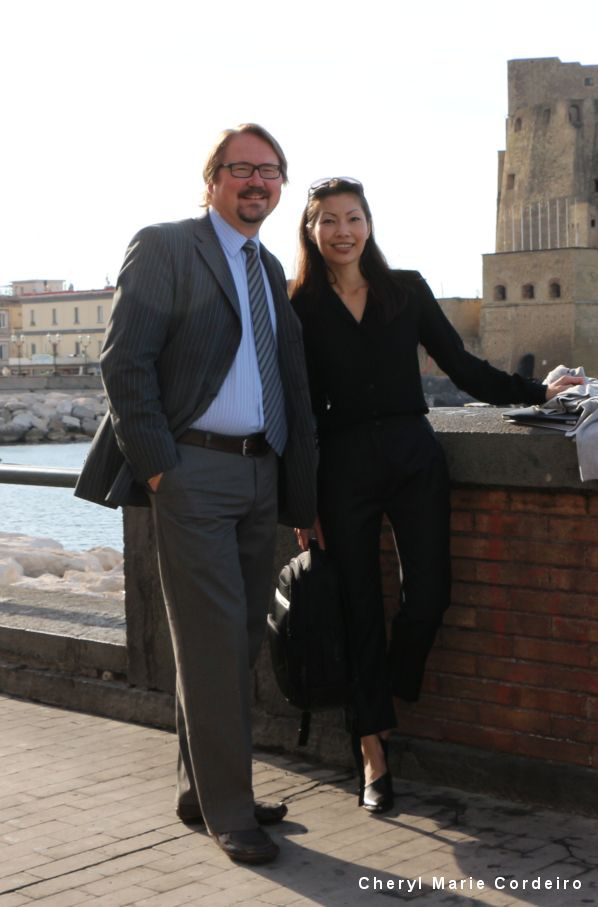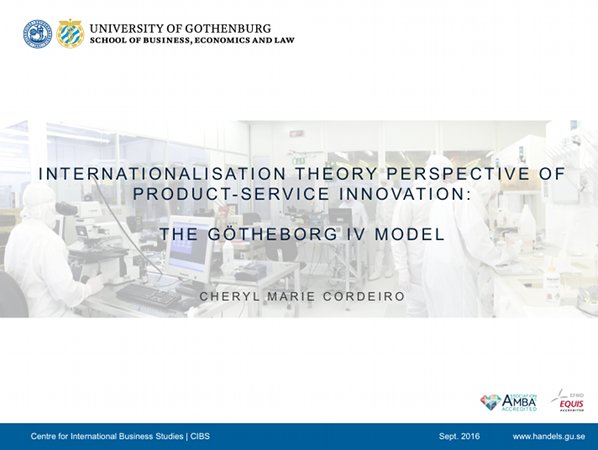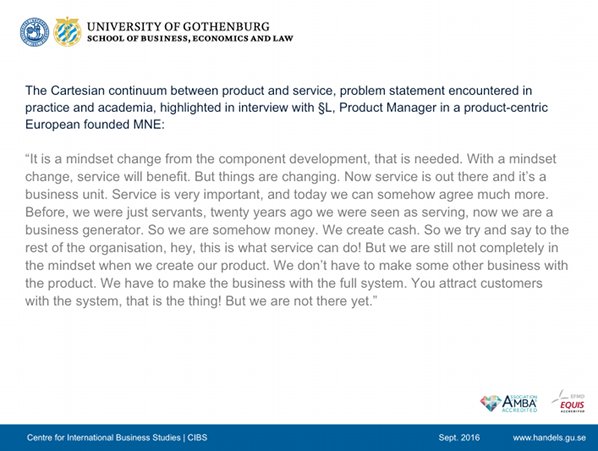[R-slider id=”10″]
The 26th annual RESER (The European Association for REsearch on SERvices) conference was held from 8 to 10 September in Naples, Italy. RESER was established in 1988 at the time when research in services was just beginning to develop in light of new global economic and social restructuring after the early 1980s recession. The University of Gothenburg had the honour of organising RESER’s 20th annual conference where Patrik and I were part of the main organising committee, and this year, the conference was organised by the University of Naples Federico II, with sessions held at the Congress Center Federico II, via Parthenope. The year’s theme was expressed in the interrogative What’s ahead in service research? New perspectives for business and society. that acted too, as a directive for research and practitioners of the field.
Patrik Ström, Associate Professor in Economic Geography, Head of Department of Business Administration at the School of Business, Economics and Law at the University of Gothenburg, and President of RESER (The European Association for REsearch on SERvices), in Naples, Italy, for the 26th Annual RESER Conference that took place 8 to 19 September 2016. To the right, Dr. Cheryl Marie Cordeiro, also presenting a paper at the conference.
Text & Photo © JE Nilsson, CM Cordeiro, Sweden 2016
This year’s conference had seven themes that included service ecosystems, smart technologies and service innovation, well-being and value (co)creation, service innovation in emerging markets, internationalisation and geographies of services, market creation in service research, and methodological challenges in service studies. A special Industry Track was organised with invited speakers from the business and economic sectors.
Keynote speaker, Eric Arnould, Professor of Marketing at the Aalto University Business School and Adjunct Professor at EMLYON France, who has a background in applied social science, spoke about services from a cultural perspective. Arnould defined culture as including social and material dimensions where human existence is symbolically constituted and culturally ordered. That culture is a distributed order of symbolic differences is manifest in group behaviour, artefacts, relationships and societal systems. Because services are human-centered activities of exchange grounded in dialogue and interaction, cultural dimensions are not outside of the services construct, but rather co-create service experiences.
Arnould’s keynote speech resonated in broader perspective to the concept of ecosystems, developing currently in disciplines outside of the study of biology. Socio-ecosystems are complex entities to study much due to that they consist of multiple levels of organisation with different types of actors and influencers in the network context. Within the service systems literature, Maglio et al. [1] saw a need to abstract service systems to better understand the concept. As such, the authors defined a service system as ”a configuration of people, technologies, and other resources that interact with other service systems to create mutual value.” Because service systems are dynamic, they can be acted upon and interact with other types of systems, the key behaviour always being co-creation in value. A well fostered services ecosystem for example, would enable value co-creation between service provider and client, by providing the necessary structures, methods and tools for all stakeholders to coordinate collaborative activities. This business ecosystem would in turn form a network of trustworthy social relations that will help fulfil customer needs and catalyse service innovation.
This idea of a service ecosystem extended in practice in my view, to the individuals that constituted the community of RESER scholars. From when I had the opportunity to organise the Gothenburg meet in 2010 and have come to know the RESER community as a convivial group of persons, informal with each other, I could see that the warm resonances have continued to be between members of the group over the years.
There were about a hundred papers presented at this conference with a hundred and fifty in attendance. The conference culminated with a celebratory dinner with achievement awards given to distinguished scholars in the field. Set against the view of Mount Vesuvius and the stretch of the Gulf of Naples on a warm evening in late summer, all that was left to round off this event was a good wine from the region of Campania, southern Italy.
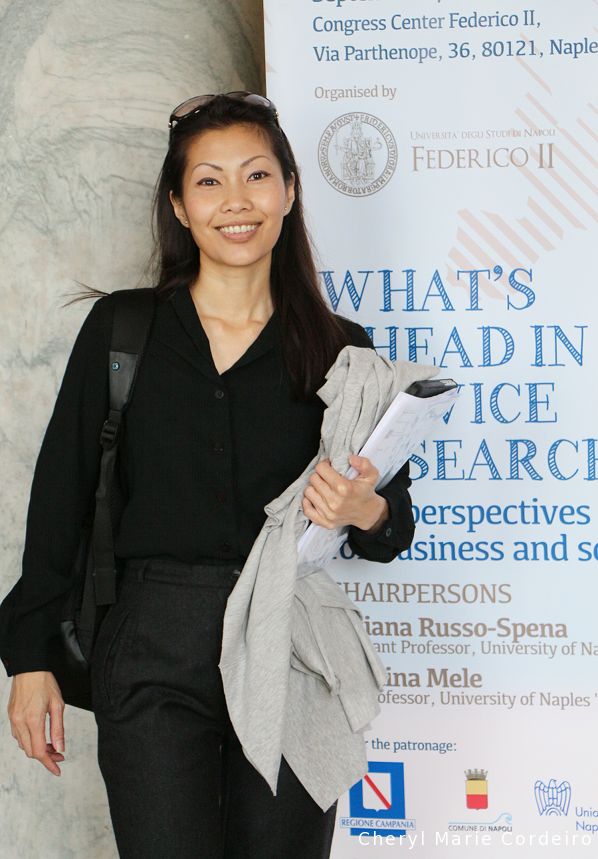
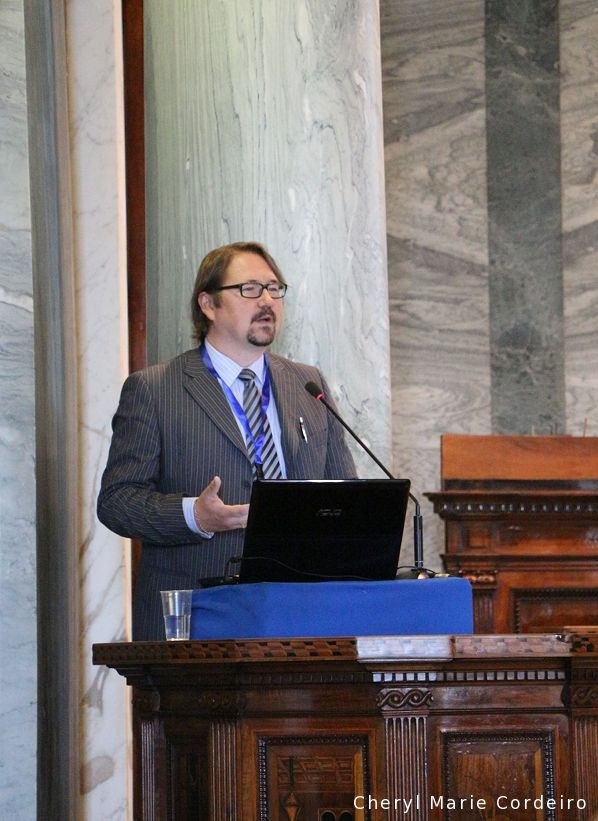
Patrik Ström President of RESER, delivering the opening speech of the 26th annual conference of RESER.
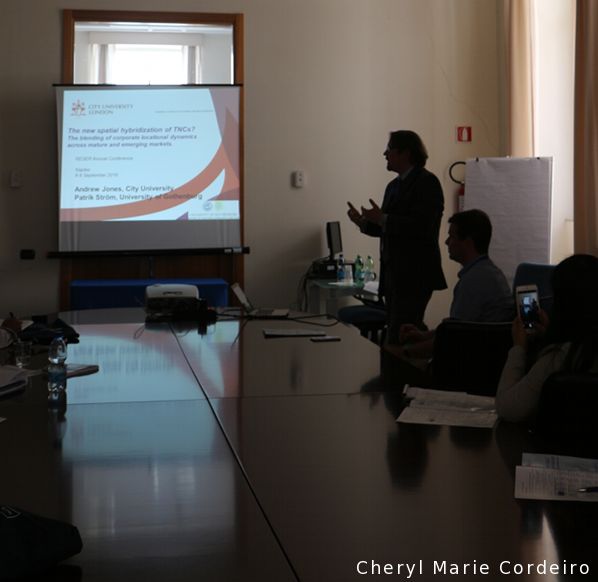
Patrik Ström with Andrew Jones, Professor in Economic Geography and Pro Vice-Chancellor (Research & Enterprise), City University of London, United Kingdom, talking about the impact of the new spatial hybridisation of TNCs (transnational corporations) across mature and emerging markets in terms of service innovation.
Presentation by Cheryl Marie Cordeiro at RESER 2016 on perspectivising the Cartesian divide on product and services in services innovation.
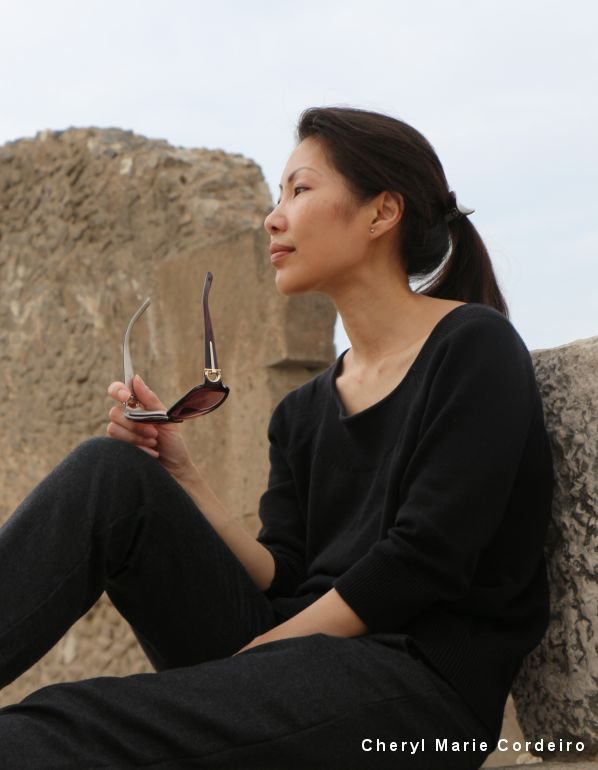
Visiting the ruins of Pompeii, sitting on a part of the plain architrave from an old Greek Doric temple.
The location of the conference in the shadow of Mount Vesuvius, and the environment lent itself to many reflections on both the service industry, the development and future of mankind as such, where the service industry will be of significant importance.
References
[1] Maglio, P.P., Vargo, S.L., Caswell, N., & Spohrer, J. (2009): The service system is the basic abstraction of service science, Information Systems and E-Business Management 7(4): 395-406.
